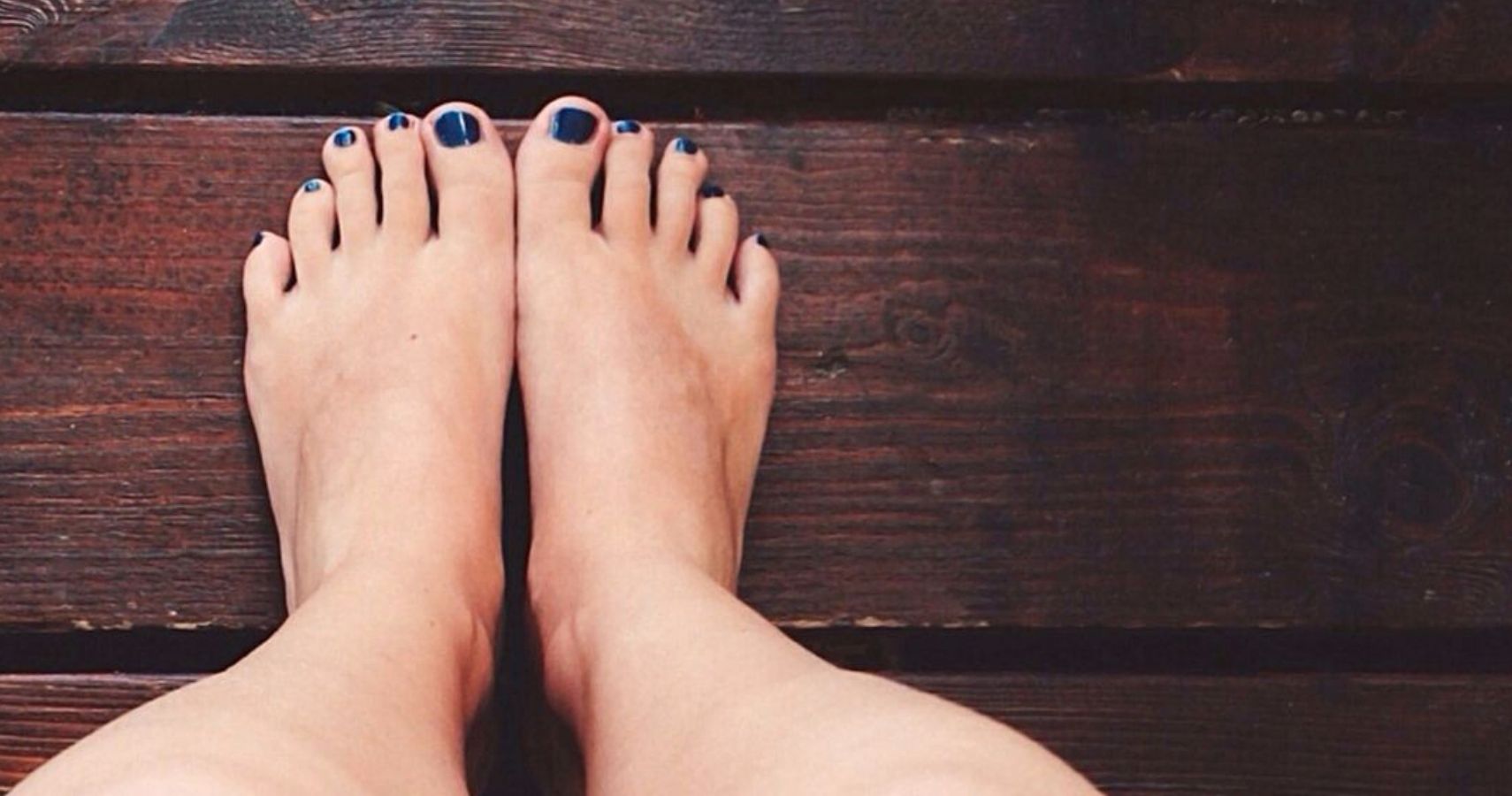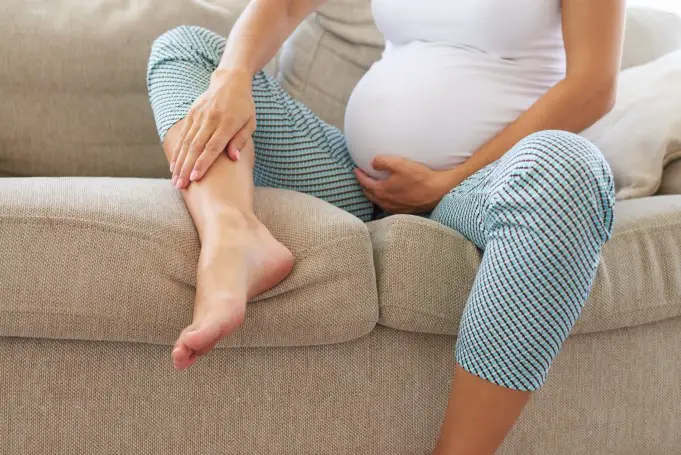While you may be celebrating that you are pregnant, it’s incredible how many toilet trips you can squeeze into a day while eagerly awaiting the coming of your baby.
Your body transforms rapidly, which can get a bit uncomfortable. Among the discomfort that numerous women experience during pregnancy is swollen feet.
Let’s discuss why your feet may get swollen during pregnancy, when you might begin to notice it, when you should see a doctor, and why you may go shoe shopping.
What causes swollen feet during pregnancy?
When you should i expect my feet to start swelling? The good news is that it is often later on, so you will probably notice the swelling on your feet for the first half of your trimester or more during your pregnancy.
First trimester
Rapidly rising levels of the hormone progesterone could slow down your digestion. This can result in abdominal bloating long before you have an obvious baby bump. You may discover a bit of puffiness in your feet, hands, or face.
If you find out that there are lots of swelling on your body, especially if it’s accompanied by additional symptoms like dizziness, headaches, or bleeding, it’s best to visit your doctor.
Second trimester
The second trimester starts with week 13 of pregnancy (approximately the beginning of the fourth month). It isn’t uncommon to begin to notice swollen feet around the fifth month of your pregnancy, especially if you stay on your feet a lot or the weather is hot.
This swelling is a result of the increasing amount of blood and fluids in your body. Your blood distribution rises by almost 50 percent during the period of your pregnancy, and that is associated with lots of hormonal fluid retention.
While it could make your rings and shoes a little snug, all these excess fluid helps loosen up your body and equip it for childbirth. Not to worry, the excess fluid will quickly reduce once your baby is born.
Third trimester
It begins with week 28 of pregnancy. The third trimester is the most widespread time to experience swollen feet. As weeks go by and you get closer to week 40, your toes are more likely to look like little sausages.
Your body continues producing blood and fluids, which can contribute to swelling. Your uterus also becomes heavier as your baby matures, which can hinder blood flow from the legs back to the heart. Do not be worried as it isn’t dangerous.
Other elements that can contribute to swelling feet include:
- Caffeine intake
- Dietary imbalances
- Not consuming enough water
- Hot weather
- Being on your feet for a long time
When you should see a doctor
Swollen feet are a widespread aspect of pregnancy. They are simply a sign of all the difficult work your body performs to develop a new little life within you. Nonetheless, swollen feet can occasionally be an indication of a more difficult situation. Among the problems caused by swollen feet is preeclampsia.
This is an ailment that occurs during pregnancy, causing severe high blood pressure. Contact your doctor if you notice any of these following symptoms:
- Unexpected swelling of your feet, hands, face, or around your eyes
- Bulging that becomes worse
- Dizziness or clouded vision
- A serious headache
- Confusion
- Difficulty in breathing
Suppose you discover swelling in one leg that is also escorted by pain, redness, or heat. This could imply that you have a deep vein thrombosis or DVT. A DVT is a blood clot that usually occurs in the leg. It is vital to visit your doctor if you notice any of these symptoms.
This is because pregnant women are more likely to get blood clots than the average person. If you are uncertain whether your swelling is ordinary or have any problems, it is best to visit your doctor.
Ways to ease your symptoms during pregnancy

While swollen feet might or might not be painful, they can certainly be irritating or bothersome.
Fortunately, there are several simple means to ease your symptoms during pregnancy. They may include snacks, a cold drink, massage, swimming, and presumably shoe shopping.
Lessen your sodium intake
One way to reducing swelling during pregnancy is to reduce your sodium (or salt) consumption. Salt lets your body to retain excess water. Avoid bottled or processed foods because they contain high levels of sodium and do not add extra table salt into your food.
Making use of delicious herbs like thyme, rosemary, and oregano is a simple way to add taste to your food without using salt.
Increase your potassium consumption
Not getting sufficient potassium can make swelling worse because potassium assists your body in balancing the number of fluids it retains. The prenatal vitamin you take should include some additional potassium, but it is also crucial to consume good sources of dietary potassium.
Few foods that are generally high in potassium include:
- Bananas
- Potatoes with the skin on
- Spinach
- Sweet potatoes with the skin
- Beans, some fruit juices that include prune, orange, carrot, pomegranate, and passionfruit
- Beets
- Yogurt
- Salmo
- Lentils
Lessen your caffeine consumption
While occasional caffeine intake during pregnancy isn’t harmful, consuming excess caffeine isn’t considered good for your baby, and it can make the swelling worse.
Caffeine is a diuretic drink that causes you to pee more and make your body feel it needs to retain fluid. You can try a decaf coffee with milk or an herbal tea like peppermint to help provide you with a little energy boost.
Consume more water
Drinking enough water helps counteract swelling. If your body feels dehydrated, it will retain even more fluid to replace the lost fluids. So consume at least ten glasses of water each day to keep your kidneys removing the bad things from your body.
If you feel discouraged from consuming that much water, get a little cup that you can keep refilling, or a big water bottle that you will have to fill a few times daily. You can also add lemon, mint, or berries to your water to make it more satisfying.
Lift your feet while resting
Even though you have tons of things, you wish to get done before the baby comes, sit and lift your feet when possible. Although sitting for a long time isn’t suitable for your body because it hinders circulation. Also, standing for an extended period can be tough on your body.
Sitting with your feet high for a little while can help remove the fluid that has been in your legs throughout the day.
Put on a comfortable clothing
Putting on tight clothing, particularly around your waist, wrists, and ankles, can cause the swelling to get worse. It keeps blood from distributing efficiently. It would be helpful if you wear loose-fitting, comfortable clothes or avoid rigid-flexible bands.
Maternity maxi outfits during the summer and flowy cardigans with joggers in the winter can be beautiful and comfortable.
Remain cool
Particularly if you are pregnant during the hot summer months, staying indoors on a hot day and avoiding strenuous workout can help keep you refresh and lessen swelling. You can also put on a cool outfit or keep a fan close by.
Take a walk
Taking a walk for 5 – 10 minute a day can assist in improving the circulation in your body, thereby reducing swelling. This can also be a suitable break in your day, and it is an excellent means of getting pregnancy-safe exercise.
Put on comfortable shoes
While you might look beautiful in your high heels, late pregnancy is the right period to stop wearing them. Wearing comfortable shoes is crucial to decreasing foot swelling and preventing hip & back issues that can happen as your center of gravity changes, and your weight increases.
The ligaments in your body can cause your feet to stretch during pregnancy, so your feet could change in size. Few women’s feet return to their average size, but other women discover that their feet become permanently a half-size or broad.
Go for a Swim
There aren’t any researches that prove that water pressure lessens swelling during pregnancy, but a lot of women find relief from swelling whenever they go for a swim.
Bathing in a pool where the water depth is nearly up to your neck would make you feel lighter, more relaxed, and you can even get a little exercise. You might also discover that your feet and legs are less bloated.
Get a massage
This is an excellent opportunity for your partner to get involved in the pregnancy process. Massage helps disperse the fluids that accumulate in your feet, which will, in turn, reduce the swelling.
So grab a bottle of water, lift your feet, and allow your partner to massage your legs gently. You can also add some peppermint or lavender essential oil to make it more relaxing.
If you are nowhere close to your delivery date, to be safe, you will want to have your spouse avoid applying pressure on some acupressure areas that are attributed to uterine contractions.
If your spouse isn’t the touchy type or you are rocking this pregnancy solo, several massage studios provide specialized prenatal massages. This isn’t just a way to help you with the swelling, but an excellent means of relieving some stress that comes from pregnancy.
Sleep on your left side
Sleeping on your left side can enhance blood flow, which lessens swelling in the feet. Lying on your left side carries the pressure caused by the uterus away from the inferior vena cava. The inferior vena cava is the massive blood vessel that carries blood back to your heart.
Swollen feet are a prevalent side effect that occurs during pregnancy. It is induced by increased fluid quantity in your body, as well as reduced circulation. If you experience severe swelling, it is crucial to visit your doctor because this could indicate something more serious. However, a little bulge is absolutely normal.
You can prevent foot swelling by getting a regular gentle workout, consuming lots of water, resting, and consuming balanced diet. Before you realize it, your shoes will fit again, and the only feet you will be focused on will be those beautiful baby toes.












